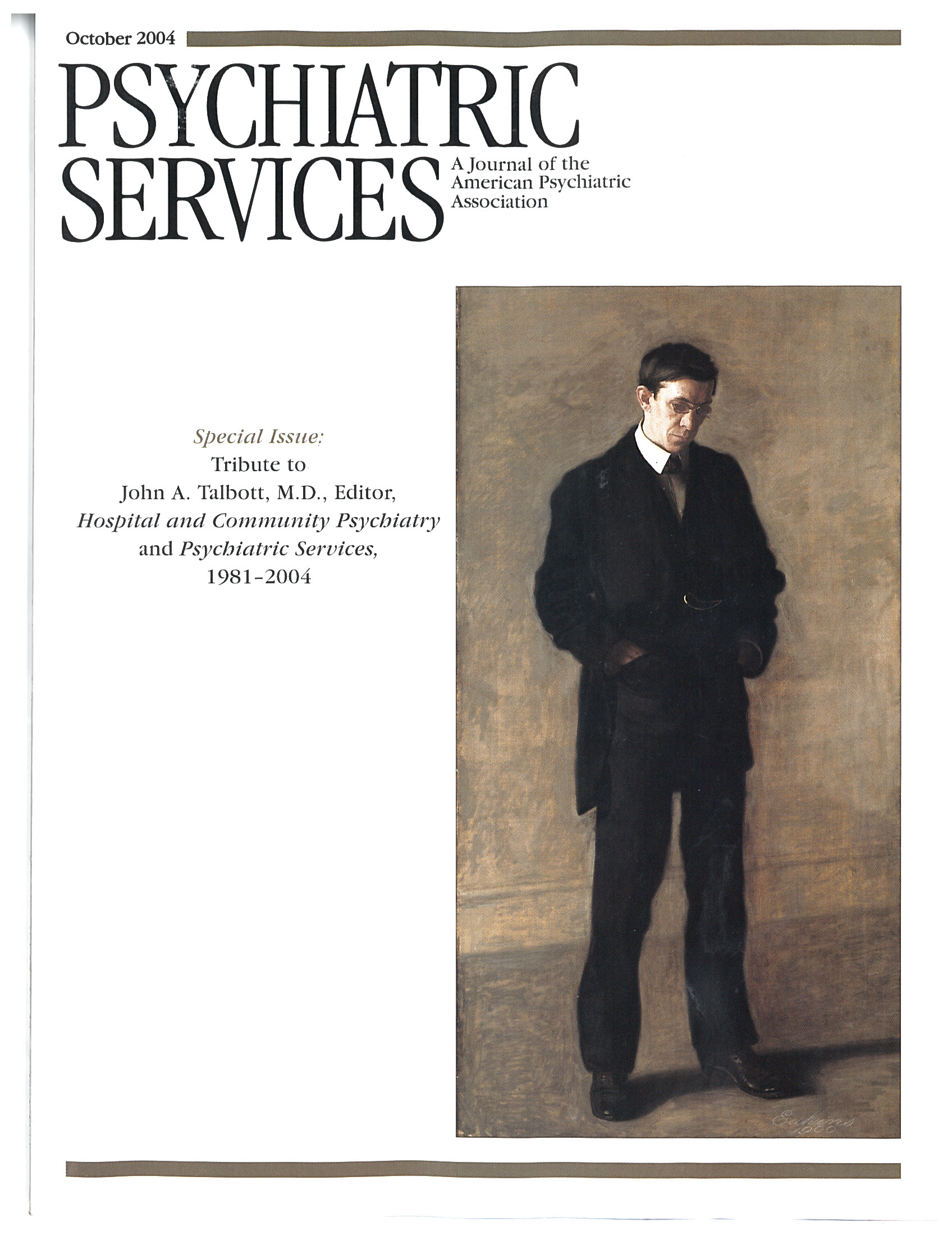This book is extremely modern for a work published 23 years ago. As I note in my Commentary in this issue of Psychiatric Services [see page 1124], that is because John Talbott had, even in 1981, a clear grasp of the problems deinstitutionalization posed for persons with long-term and severe mental illness and what was needed to solve these problems.
The chapters that were commissioned for the first part of The Chronically Mentally Ill: Treatment, Programs, Systems reflect this understanding of what needed to be done: Talbott realized the importance of medication, monitoring the patient's response to drug therapy to maximize its effectiveness, the role of individual psychotherapy, social and vocational rehabilitation, community housing and residential care, and case management.
The second part of the book addresses successful programs for this population, including the training in community living program, which has come to be known as assertive community treatment, and the pioneering psychosocial rehabilitation program at Thresholds in Chicago.
Part 3 presents programs that are more specialized, dealing with rural, child, and geriatric populations. This section concludes with a discussion by Leona Bachrach in which she extracts eight principles that together form a least common denominator for effective program design for persons with severe mental illness. These principles include specific targeting of and highest priority for the long-term mentally ill; linkage with other community resources; functional integrity (the acknowledgment that this is a population for whom the fulfillment of certain basic conditions of human existence must be arranged—conditions that have traditionally, for better or worse, been met within large institutions); individually tailored treatment; cultural relevance and specificity; specially trained staff; hospital liaison; and internal evaluation. These principles laid the groundwork for a very useful conceptualization of program design for a population that heretofore had received little attention.
When Talbott edited this work, it was already clear to him that a serious flaw of deinstitutionalization was the lack of a system of coordination among funding sources and implementation agencies. Because the problems of persons with long-term severe mental illness must be addressed by multiple public and private authorities, coordination—which was so lacking in the deinstitutionalization process—is crucial. Territorial and turf issues have often been at the root of this problem, and different agencies serving the same mentally ill individuals have often worked at cross-purposes. The ultimate objective must be a true system of care rather than a loose network of services, and an ease of communication among different types of agencies—for example, federal, state, and local agencies. To address these issues, part 4 of The Chronically Mentally Ill presents examples of state and county attempts to formulate a systems approach to the care and treatment of the chronic mentally ill patient.
This book served as a comprehensive textbook for the treatment and rehabilitation of persons with long-term, severe mental illness. When it was published, a systematic understanding of what needed to be done was nonexistent in the rest of the field. Thus the book served a pressing need.

